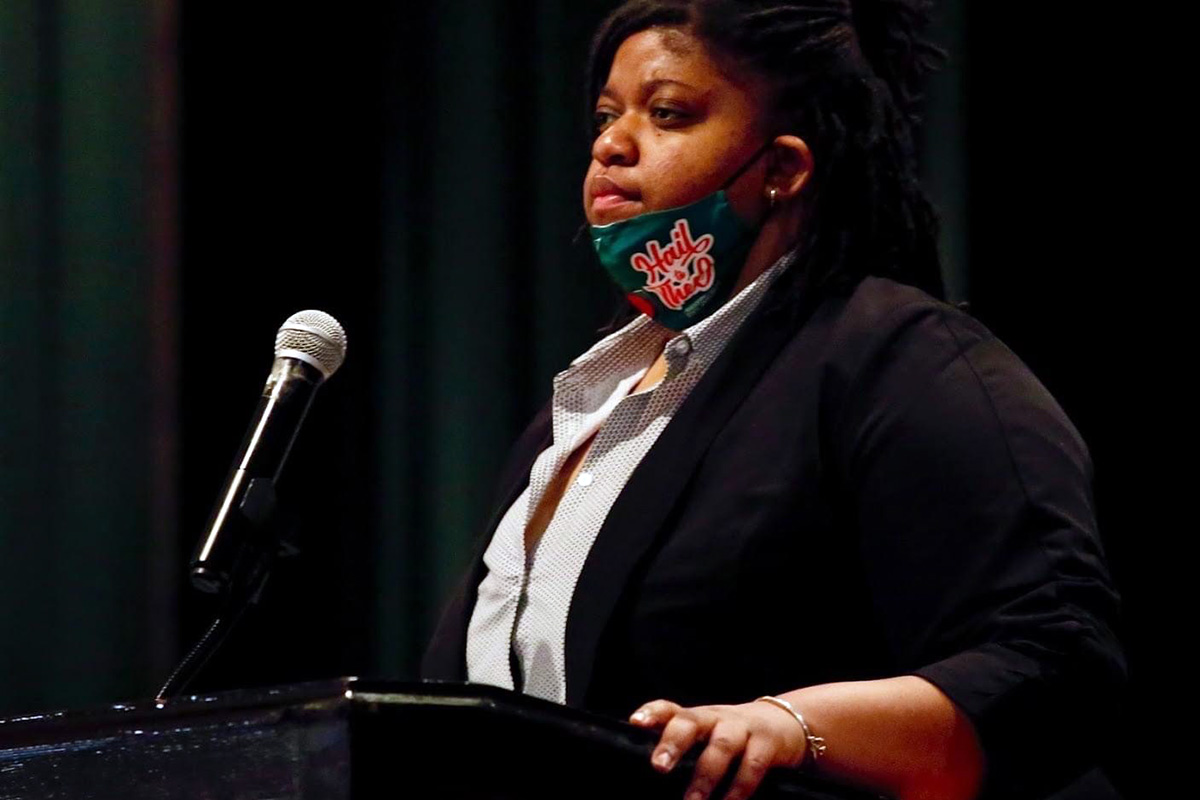Greenwood, Miss., native Jaylin Smith wanted to be part of a family experience when deciding what college to attend. She didn’t want to go somewhere she would just be another student-identification number. She wanted to go to a school where people would know her as Jaylin R. Smith.
Smith had options to become a Tougaloo College eagle or a Jackson State University tiger, but she chose to enroll at Mississippi Valley State University in Itta Bena, 10 minutes from her childhood home. She is now a graduating senior, double-majoring in mass communications and speech communications with a concentration in broadcasting, and she also serves as vice president for MVSU’s student government association.
“I’ve always felt like I’ve been drawn towards leadership positions. I think that there are a million people that can make complaints or voice problems, but there are only a select amount of people that actually want to do something about those problems,” Smith told the Mississippi Free Press. “I decided a long time ago that I wanted to be a problem-solver instead of just a complainer.”
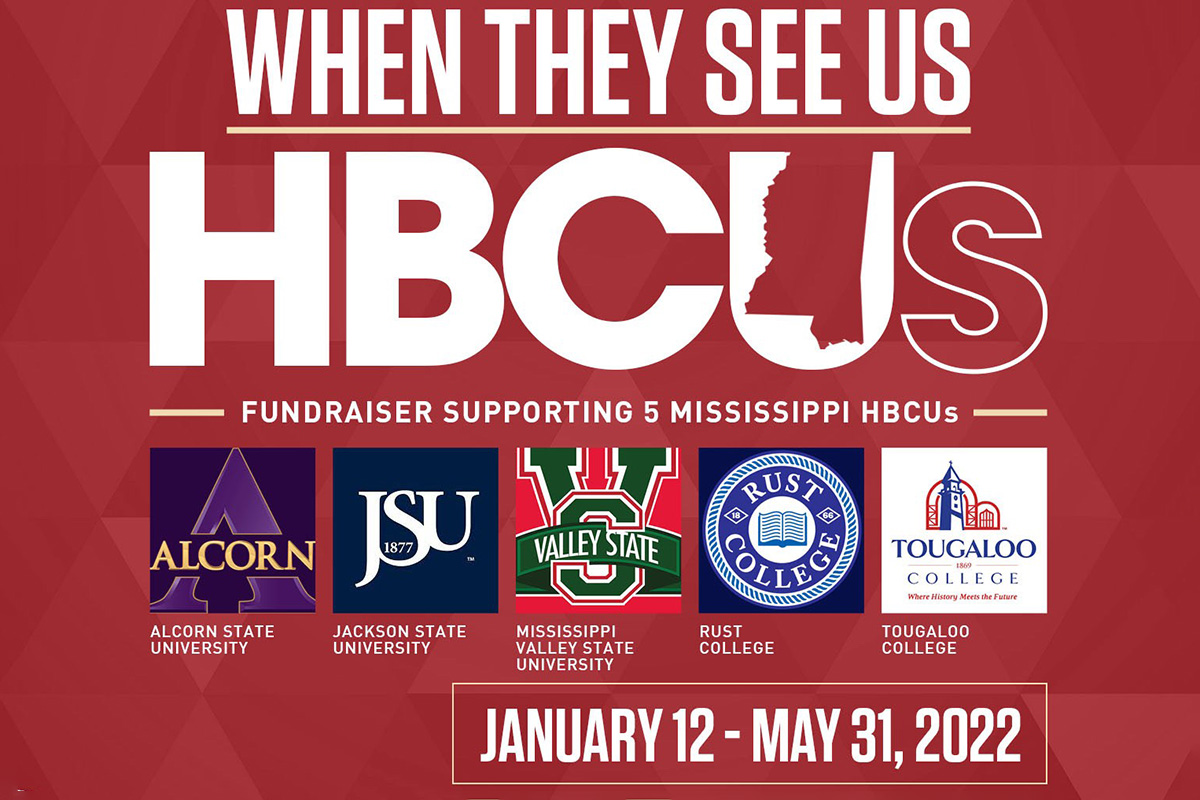
While going through her emails, Smith saw a flyer about the Jackson (MS) Alumnae Chapter of Delta Sigma Theta Sorority, Inc. HBCU campaign, a fundraiser to raise $100,000 by May 31, 2022, for scholarships for five Mississippi HBCUs. The schools chosen—Rust College, Tougaloo College, Alcorn State University, Jackson State University and Mississippi Valley State University—caught her attention.
“You see a lot of the top HBCUs like Howard, Morehouse and Spelman receiving attention from donors. It’s great. They deserve that, but there are other HBCUs that deserve that same attention, care and nurturing to be taken towards them,” she said.
‘Infrastructure, Alumni Support, Rural Settings’
The Social Action Committee of Jackson (MS)Alumnae Chapter of Delta Sigma Theta Sorority, Inc. is using these public forums to bring community voices together on issues that affect Mississippians. The forums have focused on topics like health equity, redistricting, voter suppression, supporting gender equality, and educational disparities and inequalities.
The committee hosted a forum that brought together five HBCU presidents from Jackson State, Alcorn, Mississippi Valley State, Rust College and Tougaloo College on Jan. 12 via Zoom. With Shirley Tucker serving as moderator, the presidents discussed the importance of HBCUs, the educational disparities that exist at these institutions and their collective plans to elevate HBCUs.
Tougaloo College President Dr. Carmen Walters said that, as private institutions, both Tougaloo and Rust College have smaller budgets than public HBCUs, which receive state funding. However, she recognizes that the public HBCUs like Jackson State, Alcorn and Mississippi Valley are not funded at the levels they should be as state institutions, Walters added.
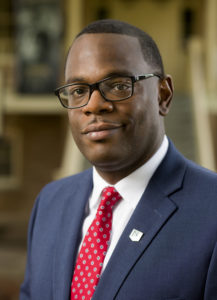
“I’m a graduate of Mississippi State University. When I walk onto Mississippi State’s campus and I walk on Jackson State’s campus, I can certainly see the difference,” she said. “I can’t speak for President Hudson, but coming from a state system into a private system, there’s certainly a big dearth of funding.”
Jackson State University President Dr. Thomas Hudson said the ages of facilities and their infrastructures are issues they are facing, not just with Black colleges and universities in Mississippi, but across the country. Last year, Howard University’s students protested poor housing conditions before they reached an agreement with the school a month later.
“We have a long history of being underfunded. Most HBCUs I think on average have about $67 million in deferred maintenance on their campus,” Hudson said. “There hasn’t been a comprehensive plan to date to really start to address those issues.”
Hudson added that they’re starting to the beginning of that plan with the recent infrastructure bill that Congress passed and that some state legislators are making efforts to begin discussing those disparities, but as of now, age and infrastructure still remain big issues for HBCUs.
“Aging infrastructure, deferred maintenance—those things the philanthropic dollars that have been coming our way typically do not address—typically, those dollars go towards scholarships and other activities related to our academics, but place matters. Your physical plant matters,” Hudson answered.
Mississippi Valley State University President Dr. Jerryl Briggs agreed with Dr. Hudson, adding that deferred maintenance creates an environment that makes it difficult to attract students who can see the difference between HBCU and PWI campuses.
“We have to do different things and really speak about the importance and relevance of what we’re doing as opposed to having those beautiful buildings and that sort of thing,” Briggs said. “The old saying is we know how to turn 15 cents into $1 very easily because that’s what we have to do.”
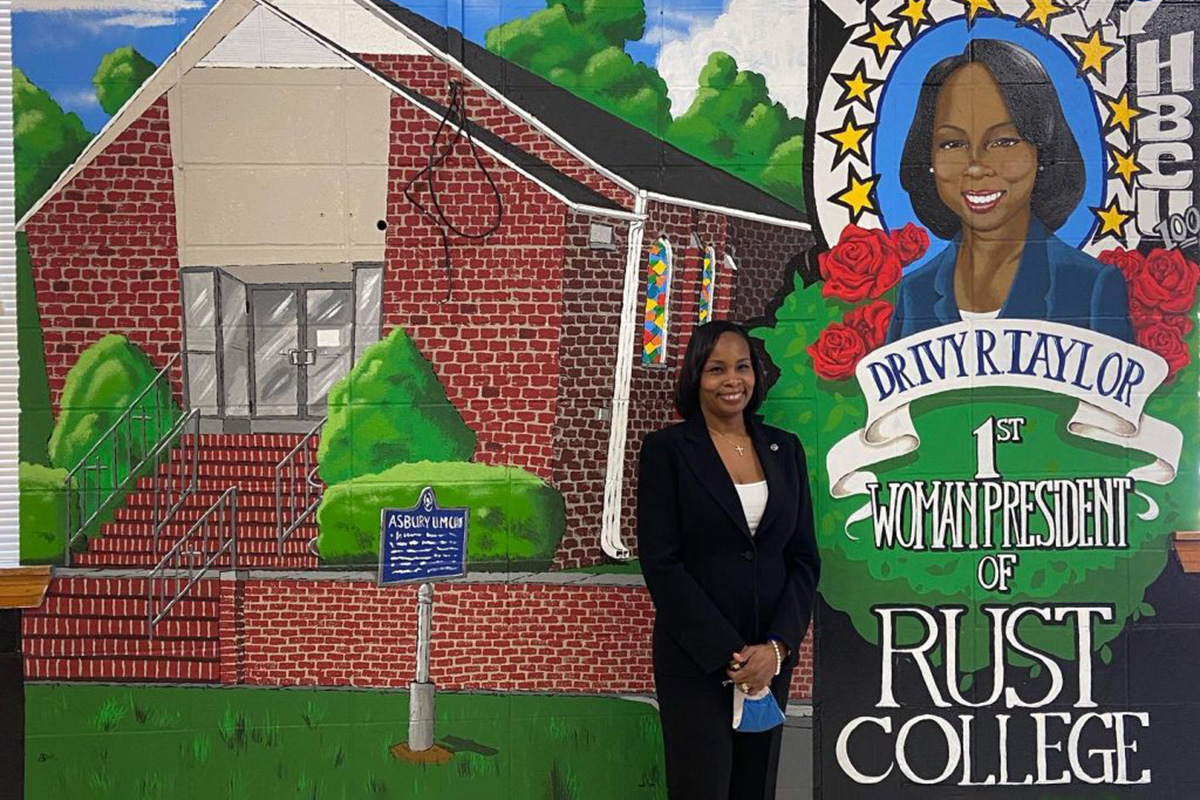
Rust College President Dr. Ivy Taylor said alumni support, from the wallet and not the heart, is also an issue, as it’s not the same as what other institutions across the state experience.
“And that’s all a result of the history here in the United States,” Taylor said. “You look at stats about the differences between the wealth of Black households versus the others and that explains why we have not received the same level of financial support from our alums.”
The administrator added that a number of people who had not traditionally been donating to HBCUs have been doing so as a way to level the playing field since George Floyd’s murder, which brought an elevated understanding of the challenges Black Americans face to the public consciousness.
“That’s a good thing that we’re starting to see some folks moving in that direction. But I would argue that the general philanthropic community and corporate support have not been the same for HBCUs as it has been for other institutions of higher education,” Taylor concluded.
Alcorn State University President Dr. Felecia Nave said most HBCU institutions are located in urban or rural settings, which brings about different and unique challenges, specifically for those in a rural setting that may lack regular advances to economic development.
“We love our southwest corner. We are a strong anchor in that community; however, the lack of economic development directly impacts our ability to attract and retain students, faculty and staff that contributes to our ability to continue to move the university forward,” Nave explained.
‘The Same Opportunities’
The “When They See Us: The HBCU Campaign” hits on the educational disparities and inequalities problem. The campaign has raised $54,325, more than halfway close to reaching the $100,000 goal by May 31.
“We’re finding that we’re having students graduate from high school, but they’re not financially stable. They may stay a semester, and the money runs out for whatever reason,” Jackson (MS) Alumnae President Gwendolyn Handy told the Mississippi Free Press.
Handy believes that HBCUs will work harder than PWIs—predominantly white institutions—to find funds for students who cannot continue their education. Handy’s family didn’t have much, but one thing her parents wanted to provide for her was a college education, she said. She chose Jackson State University.
“The mother of the church (I attended) was an administrator at Jackson State, and she helped me find financial funds. She found work sturdy,” Handy told the Mississippi Free Press. “She wanted to make sure that my mind and my parents’ minds were at peace, that their child was attending an HBCU and she would be able to thrive anyway she wants to. And I did.”
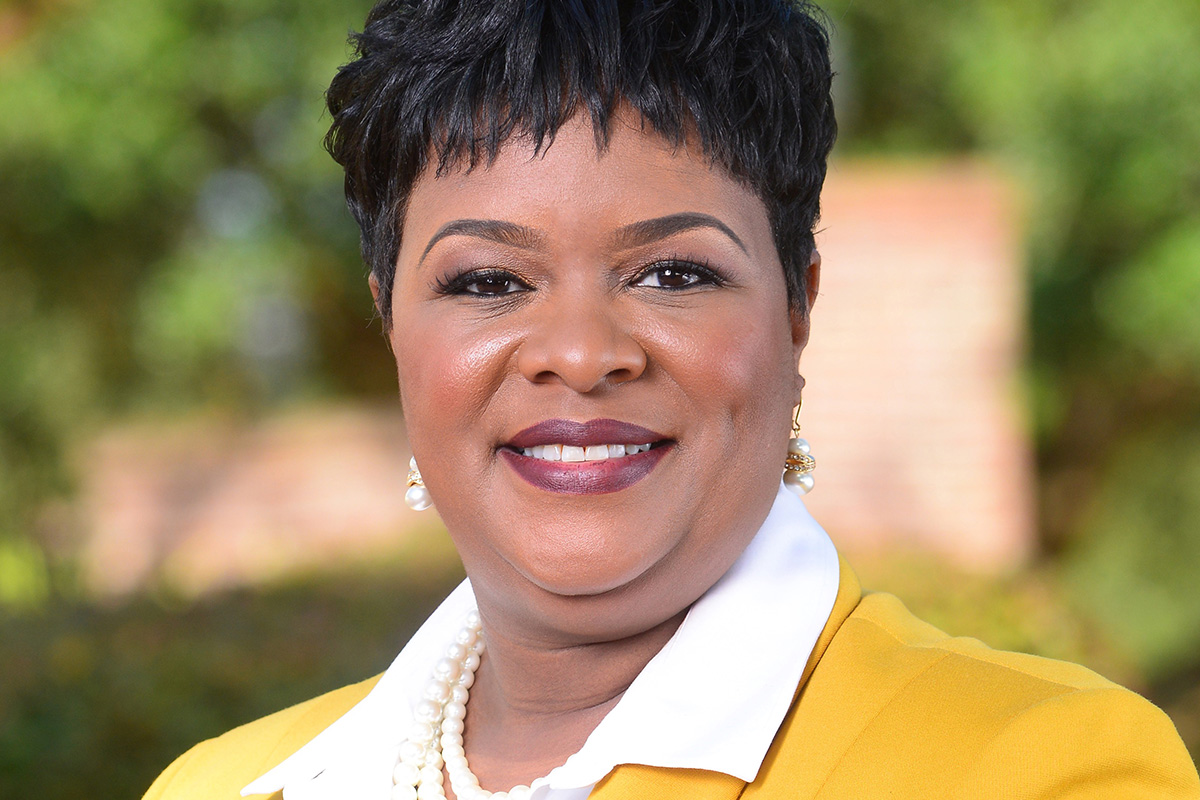
Handy attended Jackson State from 1975 to 1979 and received her master’s degree from Jackson State in 1981. She also became a member of Delta Sigma Theta Sorority, Inc. during those years. As someone who grew up during the civil-rights era, Handy does not think she would be the person she is today if she had attended a PWI, she said.
“I had an opportunity to engage in more civil-rights activities (and) to really see how the world really reacted to us as Black women and Black people,” she said.
Jaylin Smith participated in a March 9 Mississippi HBCU Student Body Presidents’ forum that Jackson Alumnae Chapter hosted together with student government presidents from the five Black colleges via Zoom. She said they discussed Black politics, Mississippi politics, and the need for intersectionality between state politics and HBCUs in regard to funding, visibility and cultural understanding.
“Being at an HBCU helps you understand the difference more between equality and equity and how we do need more love and more support in certain areas so that we can be just as competitive in certain areas as our counterparts,” Smith said.
MVSU senior Jaylin Smith said she is blessed to be able to have scholarships and grants to help fund her education. However, she understands that without that financial aid, she would have to depend on state and federal funds to pay for her education.
“I’m not from an affluent family when it comes to money, but love and support is definitely there,” she said. “And I know that there are other students who are in my shoes and might not have done as well when it came to standardized tests.”
“Does that mean that they don’t deserve the same opportunities that I’ve been provided?” she posited.
‘69 million vs. 674 million’
The American Council on Education reported that public HBCUs rely on federal, state and local funding more heavily than their non-HBCU counterparts and that private HBCUs are more tuition-dependent than PWIs.
In private and public sectors, HBCU endowments lag behind those of non-HBCUs by at least 70%, and this gap hurts HBCUs’ ability to buffer decreases in state and federal funding. Endowments are an aggregation of assets a college or university invests to support its educational and research mission in perpetuity.
“All together, the 10 largest HBCU endowments in 2020 totaled $2 billion, compared to $200 billion across the top 10 PWI endowments,” a Brookings article reported. The combined endowment for every HBCU in the country through 2019 was just over $3.9 billion. For context, New York University alone had an endowment of $4.3 billion that year.”
Alcorn State University, Mississippi Valley State University and Jackson State University’s combined endowments equal $69 million compared to University of Mississippi’s endowment of $674 million.
The money Congress sets aside for each school is supposed to be matched dollar-for-dollar by the state the schools are located in, but that rarely happens. HBCUs are now fighting back. In 2021, a report found that the State of Tennessee owes Tennessee State University between $150 million to $544 in land-grant funds and that lawmakers have been aware of the underfunding for decades.
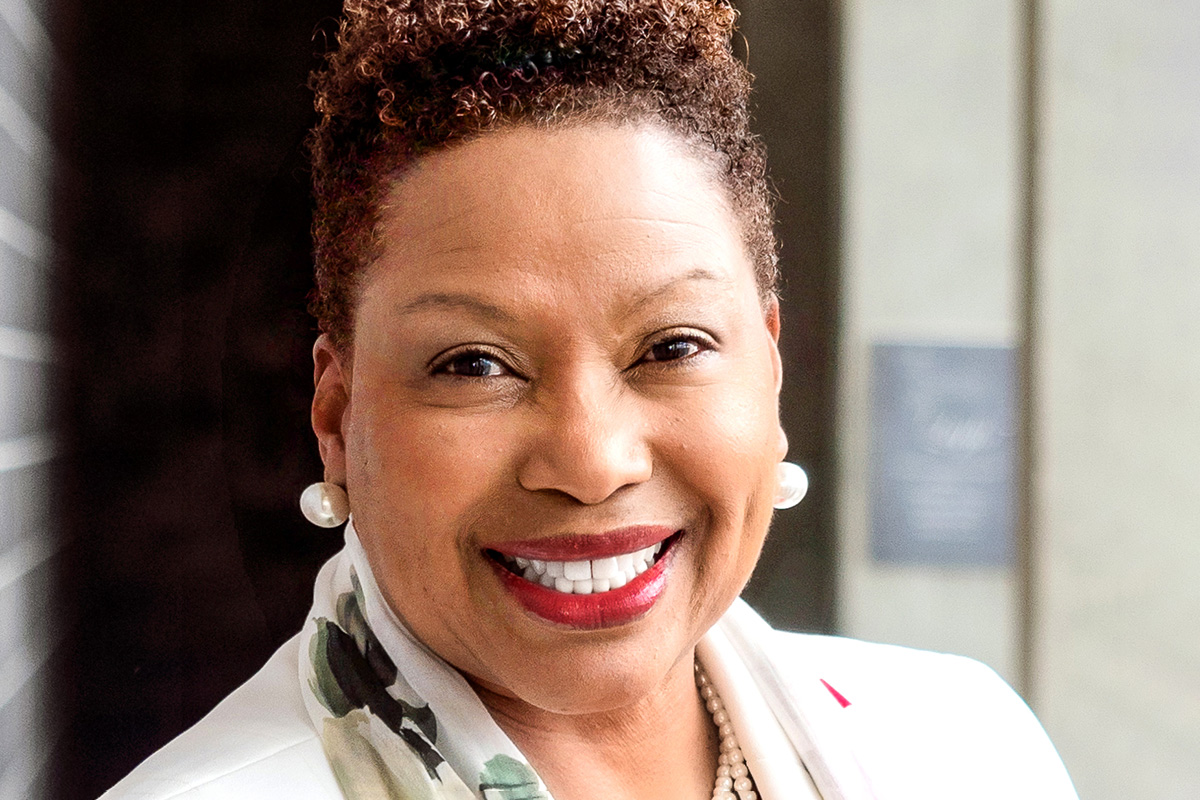
In 2006, alumni and supporters of Maryland’s historically Black colleges and universities filed a lawsuit against that state, asserting that the state underfunded its four HBCUs and allowed white universities to duplicate programs offered at Black colleges, which compromised their ability to attract students.
Although the court ruled in 2013 that HBCUs were not underfunded compared to PWIs, they did find that the program duplication sustained segregation. Since then, the state and alumni coalition have worked on an agreement to resolve the issue.
After 15 years, the state reached a $577 million settlement that will allocate funds to the HBCUs over the next decade, starting in 2023.
Black Mississippians are not strangers to fighting back against the state. In 1975, civil-rights veteran Jake Ayers Sr. filed a lawsuit in federal district court accusing the State of Mississippi of not providing adequate resources to its HBCUs. The case became a class-action lawsuit with the United States and Bennie Thompson getting involved as plaintiffs.
“Mississippi has three publicly funded historically Black colleges and universities: Jackson State University, Alcorn State University and Mississippi Valley State University. … The state legislature unequally appropriated tax dollars so that these schools were severely underfunded, resulting in gross inequities in the available educational opportunities,” Mississippi Encyclopedia reports.
In 2001, Mississippi settled the class-action lawsuit that would amount to $500 million over two decades for the state’s four year HBCUs. Under the agreement, the State would provide the following: $245.8 million to create and enhance academic programs at JSU, ASU and MVSU in various disciplines; a $70 million publicly funded endowment; and a $35 million privately funded endowment.
In addition, the schools would get up to $75 million to improve campus faculties and to fund new buildings, and the state would give $6.25 million for scholarships to the schools’ summer developmental-education programs.
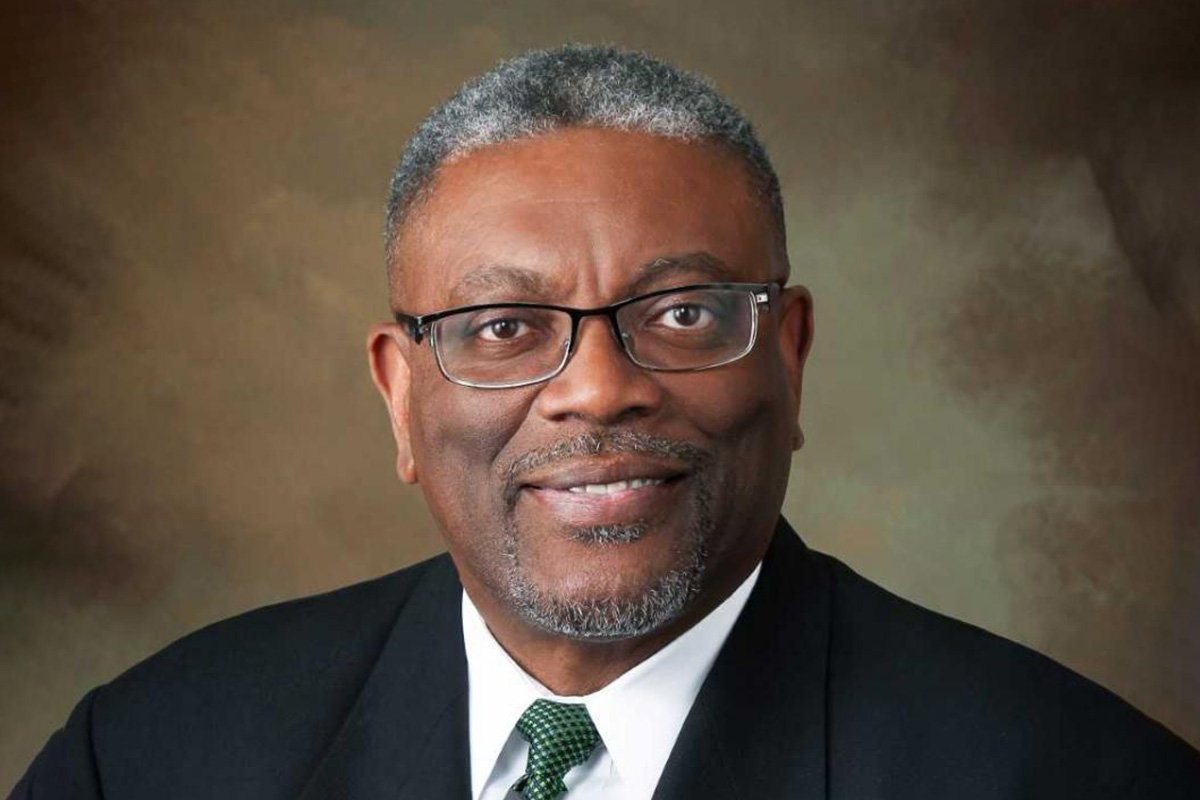
However, the full imbursement of the endowment funds would only happen if at least 10% of each school’s student body was non-Black, and the scholarships for summer educational programs went to all public universities in the state, not just HBCUs.
Mississippi Today’s 2021 explainer on the lawsuit reported that once the universities reached the requirement to access their public endowment, they could use the funds in other areas. Interest generated from the $70 million endowment was used to attract non-black students.
Although the public endowment was fully funded by 2019, only $1 million of the $35 million private endowment has been raised. HBCUs will have received $530 million by the time the settlement ends July 2022, the report states.
On March 7, 2022, the U.S. Department of Education released a state-by-state breakdown of more than $2.7 billion in funding for HBCUs, which was provided in President Biden’s American Rescue Plan. More than $237 million is going tor the seven HBCUs in Mississippi with JSU receiving more than $60 million, ASU more than $33 million and MVSU more than $22 million.
‘The Collective Mindset’
Gwendolyn Handy wants the sorority’s HBCU campaign to be something the chapter does every year as it gives alumni an opportunity to give back to their school and remember their roots.
“The Jackson (MS) Alumnae Chapter is here to remind those students who have forgotten where they came from. Now is the opportunity for you to step in and give a little bit,” Handy said.
MVSU Senior Jaylin Smith said a lot of campaigns that spotlight HBCUs are for show, but the difference in the “When They See Us” campaign is that it promotes a cycle of giving back.
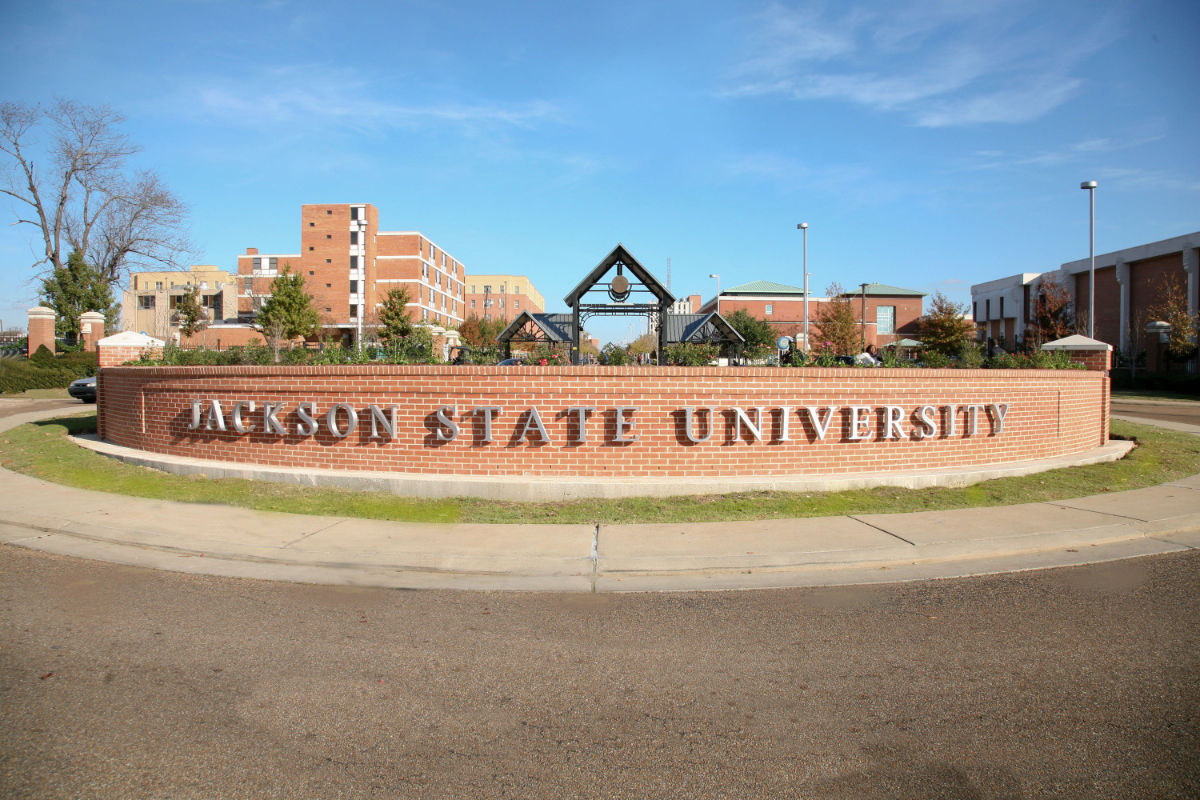
“They’re listening to our concerns of what we lack when it comes to educational resources or infrastructure or how we need assistance from our state agencies to help us,” Smith said.
“They’re also actively listening, not only listening to our problems, but creating solutions and putting what we’re saying into action, so that future generations will be able to have better opportunities.”
Smith said it’s one thing to graduate from an HBCU, take everything you’ve learned and be great for yourself, but her experience at a Black college has taught her collectivism.
“(The question is) not what can I do or what can the school do for me, but what can I do for myself and the school as a collective?” Smith postulated. “When we get to the places where we are in positions to give back, I think that it’s imperative that we do.”
This story was updated on March 23, 2022 to reflect the correct spelling of the Greek organization’s name and new information pertaining to the lawsuit. We apologize for any inconvenience.
To learn more about “When They See Us HBCU Campaign” or to donate, visit here. To learn more about the Jackson (MS) Alumnae Chapter of Delta Sigma Theta Sorority, Inc., visit its website.

